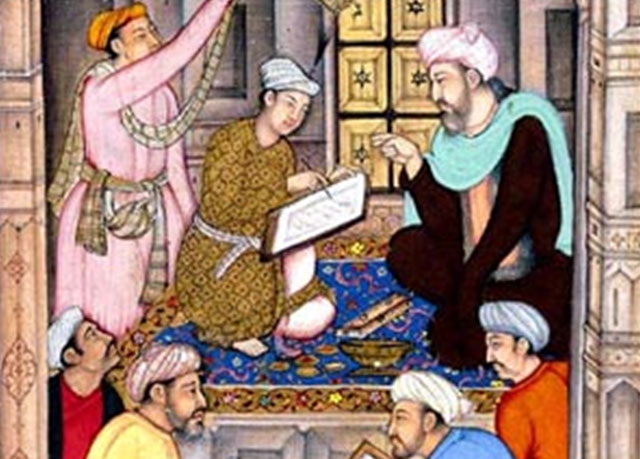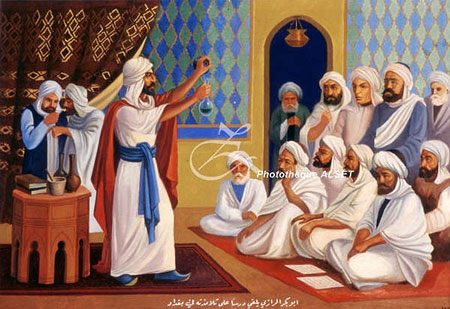For early Muslims, knowledge was a treasure they would eagerly seek. Medical science and pharmacy were no exceptions.
Muslim physicians’ early practice emphasized the importance of preserving health through natural gentle interventions.
The Hippocratic philosophy of ‘Premium non nocera’ (first don’t harm) was a well-kept notion in their minds as it reflected the teaching of their religion.
Prophet Muhammad’s words, “Your body has rights over you” (agreed upon – Ṣaḥīḥ al-Bukhārī) paved their way to amazing advancement in the medical, pharmaceutical, and health fields.
Studying history, we can see that medicine within the Islamic civilization passed through three main stages (Abouleish, n.d.).
The first stage started in the early 7th century by collecting and translating the medical knowledge of the Greeks, Persians, Assyrian Syriacs, Indians, and Byzantines. (Nagamia, 1998)

Prophet Muhammad’s words, “Your body has rights over you” paved their way to amazing advancement in the medical, pharmaceutical, and health fields.
Soon enough, Muslim physicians started to elaborate on the collected body of knowledge and largely expanded it through experience, exploration, experimentations, testing, and practice.
This was during the Golden Age of the Islamic civilization that brought the original contributions of Muslim physicians in the medical, pharmaceutical, herbal, nutritional and botanical fields.
This second stage extended during the ninth through thirteenth centuries. During the last stage, however, decline occurred which reflected the stagnation and gradual deterioration of the whole Islamic nation.
During the second stage, many physicians, Arabs as well as non-Arabs, contributed to the flourishing of the medicine. Physicians like Al-Razi, or Razes (841 – 926 AD), and Ibn-Sina, known as Avicenna (980 – 1037 AD) were pioneers in the medical fields. Their books and teachings were used as bases for medical study in Europe for centuries to come.
Al-Razi’s fame started with the establishment of a hospital in Baghdad in the 9th century which included a special ward for mental illness. He also pioneered in holistic and spiritual medicine, advocating healing and caring for the whole patient.
This idea was well reflected in his book ‘Al-Tibb al-Rawhani’ (Spiritual Medicine) where he emphasized the importance of heart purification and ethical and virtuous conducts in achieving total healing.
In his famous book, Al-Qanun fi al-Tibb (The Law in Medicine), Ibn-Sina laid the foundation of medical practice, compiled a complete Materia Medica, described diseases and malfunctions and gave a full formulary of remedies, suggestions, and recipes for treatment.
Pages: 1 2 3

